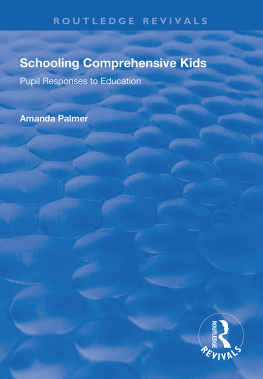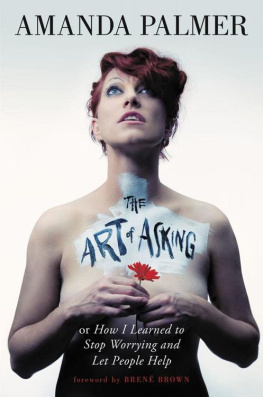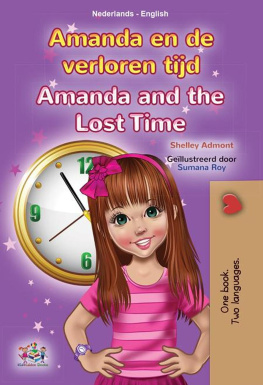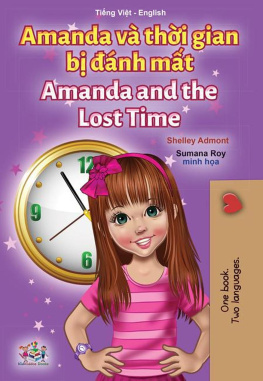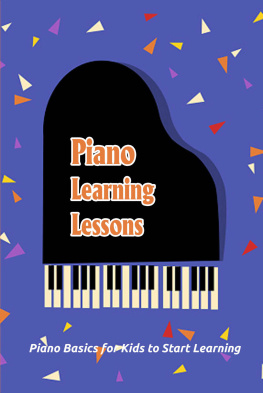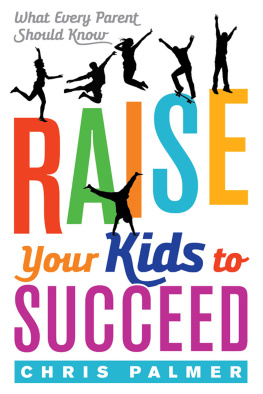Amanda Palmer - Schooling Comprehensive Kids
Here you can read online Amanda Palmer - Schooling Comprehensive Kids full text of the book (entire story) in english for free. Download pdf and epub, get meaning, cover and reviews about this ebook. year: 2020, publisher: Taylor & Francis, genre: Home and family. Description of the work, (preface) as well as reviews are available. Best literature library LitArk.com created for fans of good reading and offers a wide selection of genres:
Romance novel
Science fiction
Adventure
Detective
Science
History
Home and family
Prose
Art
Politics
Computer
Non-fiction
Religion
Business
Children
Humor
Choose a favorite category and find really read worthwhile books. Enjoy immersion in the world of imagination, feel the emotions of the characters or learn something new for yourself, make an fascinating discovery.
- Book:Schooling Comprehensive Kids
- Author:
- Publisher:Taylor & Francis
- Genre:
- Year:2020
- Rating:4 / 5
- Favourites:Add to favourites
- Your mark:
- 80
- 1
- 2
- 3
- 4
- 5
Schooling Comprehensive Kids: summary, description and annotation
We offer to read an annotation, description, summary or preface (depends on what the author of the book "Schooling Comprehensive Kids" wrote himself). If you haven't found the necessary information about the book — write in the comments, we will try to find it.
Schooling Comprehensive Kids — read online for free the complete book (whole text) full work
Below is the text of the book, divided by pages. System saving the place of the last page read, allows you to conveniently read the book "Schooling Comprehensive Kids" online for free, without having to search again every time where you left off. Put a bookmark, and you can go to the page where you finished reading at any time.
Font size:
Interval:
Bookmark:
A-level | - | Advanced level GCE (see below) |
B.Tec | - | Business and Technical Education Council |
CSE | - | Certificate of School Education |
DES | - | Department of Education and Science |
F.E. | - | Further Education |
GCE | - | General Certificate of Education |
HND | - | Higher National Diploma |
LEA | - | Local Education Authority |
O-level | - | Ordinary level GCE (see above) |
RSA | - | Royal Society of Arts |
OND | - | Ordinary National Diploma |
RSA | - | Royal Society of Arts |
TVEI | - | Training & Vocational Education Initiative |
YOP | - | Youth Opportunities Programme |
YTS | - | Youth Training Scheme |
W.I. | - | West Indian origin (see below) |
Asian | = | Individuals of Asian origin irrespective of actual country of birth |
West Indian | = | Individuals of West Indian origin irrespective of actual country of birth |
Black | = | Pupils of West Indian origin only, unless otherwise stated |
Achievers | = | Pupils sitting predominantly O-levels, wim or without CSEs |
Less-achievers | = | Pupils sitting predominantly CSEs, with or without the occasional O-level |
Font size:
Interval:
Bookmark:
Similar books «Schooling Comprehensive Kids»
Look at similar books to Schooling Comprehensive Kids. We have selected literature similar in name and meaning in the hope of providing readers with more options to find new, interesting, not yet read works.
Discussion, reviews of the book Schooling Comprehensive Kids and just readers' own opinions. Leave your comments, write what you think about the work, its meaning or the main characters. Specify what exactly you liked and what you didn't like, and why you think so.

